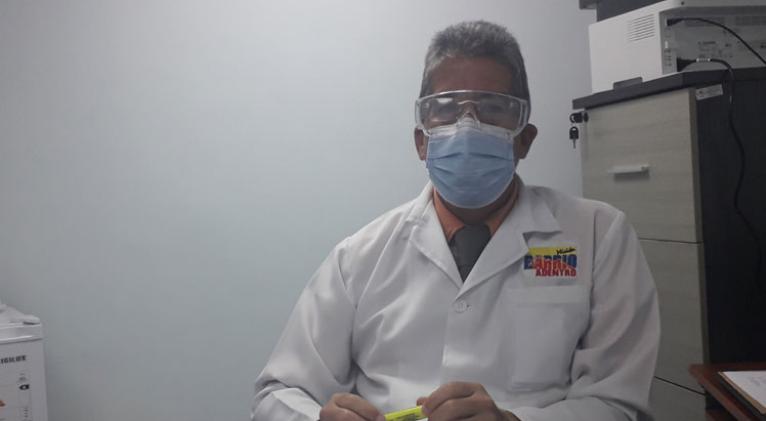Nobel Prize for Cuban medical brigade to recognize altruistic work
especiales

Guatemala, Peru, Pakistan and Liberia are included in the physician's CV, who currently serves in Venezuela as head of the Salvador Allende Comprehensive Healthcare Center, the flagship institution of Cuba's medical mission in Venezuela.
A native from the central Cuban province of Villa Clara, Dupuy has also served in missions in Nigeria and Eritrea, but the founding of the Henry Reeve Internationalist Medical Contingent has left a special imprint on him. He keeps every detail of the founding moment of the contingent formed in 2005, aimed at assisting the victims of Hurricane Katrina in the affected territories of the southern United States.
'Some 1,500 professionals from all provinces were brought together at the Latin American School of Medicine in Havana, where we received integral preparation on how to fight disasters and serious epidemics, in addition to reinforcing our knowledge of the English language,' the doctor noted.
On September 19, 2005, the historic leader of the Cuban Revolution, Fidel Castro (1926-2016), inaugurated the Henry Reeve Internationalist Medical Contingent, as a tribute to Reeve. a young US paradigm of internationalist aid and solidarity.
A graduate in clinical laboratory, Dupuy was given the responsibility of leading his partners from the beginning, and he felt then the pride of continuing the imprint of his father Berman Miguel Dupuy, to mitigate the pain of others from medicine.
In view of the refusal of the US government to receive the help offered by Cuba, this group had then as first destination Guatemala, a nation affected in almost all its territory by the tropical storm Stan in October of the same year.
'In Guatemala, we assisted the population affected by the floods for 15 days, and from there I was called to go as head of the Cuban medical brigade to Pakistan, which was hit by an earthquake,' the specialist recalls.
'That was our litmus test, of strength and of conviction representing the contingent; we faced first many physical traumas suffered by the people during the catastrophe, and then the conditions generated by the hygienic sanitary situation,' he highlighted.
Each internationalist mission brought satisfactory or heartbreaking experiences in the task of saving lives; however, in 2014, Liberia reserved for Juan Carlos Dupuy the most dangerous and challenging scenario in his life.
The Ebola epidemic -an infectious hemorrhagic disease caused by the virus of the same name- demanded the participation of them in three West African countries, Sierra Leone, Guinea Conakry and Liberia.
'We arrived in the Liberian capital of Monrovia in the middle of a very dark night, with the city in darkness and a total absence of people in the streets due to the curfew; we felt the natural fear of human beings, but we were prepared to enter the so-called red zone,' Dupuy describes.
'The first months were stressful, we saw entire families disappear, everyone was afraid of the invisible enemy, as we Cubans called it, but with the constancy of our medical brigades and international support, we managed to corner the problem,' he assures.
After assuming dissimilar responsibilities in the face of natural disasters and serious epidemics, the specialist currently leads a prestigious team of colleagues in Venezuela, where the Cuban medical mission occupies one of the main front lines of containment of the Covid-19 pandemic.
With humility and pleasure, Dupuy received the news of the nomination for the Nobel Peace Prize from the Henry Reeve International Medical Contingent, of which he feels proud to be part as the founding coordinator.
'It represents a prize to the altruism and detachment of all the members who save lives in a selfless way, from the respect to the idiosyncrasy of each people, but even more to the commitment as Cubans to assist any country in need,' he noted.














Add new comment